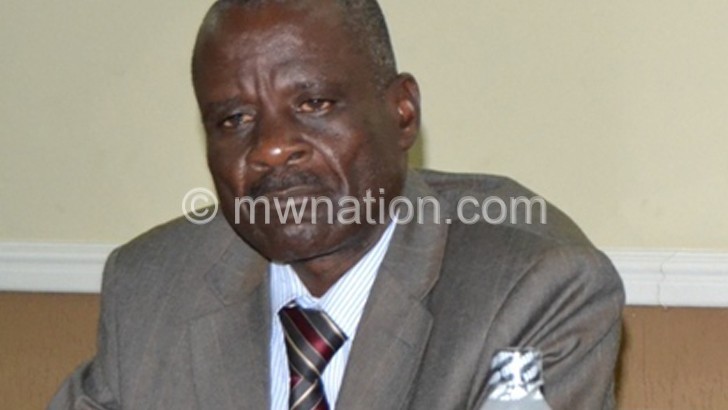Economist warns on teachers’ risk allowance
Malawi, Morocco, and more – Africa’s biggest lotteries Economist Milward Tobias has warned government against granting teachers their wish for a Covid-19 risk allowances, saying doing so will open a pandora’s box where every civil servant would want to benefit in similar manner.
Tobias, who is also executive director for Centre for Research and Consultancy, said this in a written response against a background of a meeting yesterday between government representatives from Ministry of Education and Ministry of Labour on one hand and the Teachers Union of Malawi (TUM).
The meeting went on late into the night. TUM was led by its president Willie Malimba while Ministry of Education Principal Secretary (Administration) Kiswell Dakamau and Ministry of Labour Commissioner of Labour Hlalerwayo Nyangulu were among dignitaries on the government side.

Tobias argued that the current public sector wage bill is not only unsustainable, but also unjustified and called on government to be cautious when dealing with any proposal that increases the wage bill.
Tobias said: “Unfortunately, there is no apparent capacity to correct the mistakes. Recently, government announced the introduction of a medical scheme for civil servants, an extremely strange decision so to say and in my view a policy miscarriage.
“It [the medical scheme] adds unwarranted pressure on the national budget. If the issue is that other public institutions have medical insurance, the solution would be to abolish that practice and make everyone appreciate the importance of a functional public health system.
“You do not solve a problem by extending its coverage. You solve a problem by removing it.”
He said containing the wage bill within sustainable level requires strong leadership “that does not move by activism from interest groups, but by evidence-based decisions on what is good for the nation”.
In an earlier interview last week, Institute of Chartered Accountants in Malawi president Francis Chinjoka Gondwe also warned that spending an additional K4 billion per month on teachers’ risk allowances would worsen the country’s deficit situation further.
He advised the concerned parties to remove personal interest on the matter and look at the bigger picture, including increasing expenditure on prevention.
But in a separate interview, educationist Steve Sharra said if the country really appreciates the teachers’ welfare, government should handle teachers concerns in a meaningful way.
If government were to pay the risk allowance to teachers, it would need an extra K4 billion per month or K40 billion for the 10-month period covering the school calendar up to December, according to a document compiled by Ministry of Education.
The breakdown of the K4 billion per month is based on 103 013 teachers in public schools and calculated using the rates approved for frontline healthcare workers approved last year.
Primary school teachers, who are 93 888, would cost government K3.4 billion while the 8 686 teachers in secondary schools would get K505 million per month and 439 tutors in teacher training colleges would be getting a K26 million monthly share from Treasury.
The projected K40 billion total represents 40 percent of the allocation to Ministry of Education in the 2020/21 National Budget which will expire on June 30.
Based on the Malawi Prisons Service annual allocation of K10 billion, the projected total risk allowance demand for teachers would cover the department for four years.
The demand for the risk allowance has come at a time government is facing a serious fiscal pressure with the budget deficit standing at over K750 billion, the highest in the country’s history.
Presenting his Mid-Year Budget Review Statement in Parliament in Lilongwe on Friday, Minister of Finance Felix Mlusu said public sector wages and salaries had been revised upwards by K1.6 billion from K523.7 billion to K525.3 billion. The revision is meant to finance recruitment of healthcare workers in the face of Covid-19 pandemic.
The current wage bill is about 24 percent of the national budget.
In his statement, Mlusu painted a gloomy picture of how government is struggling to raise funds for procuring of vaccines to cover the entire population.
To date, out of K91 billion ($120 million) meant for vaccines to cover the whole population, government has raised about K30 billion ($40 million) to cover 20 percent.
Last week, the Presidential Task Force on Covid-19 rejected a request by TUM to have teachers receive risk allowances as is the case with frontline healthcare workers fighting Covid-19.
Minister of Education Agnes NyaLonje told Parliament that her ministry cannot provide the allowances because it was beyond the ministry as well as labour policies; hence, the task force was engaged to provide guidance.
“The task force does not think giving teachers the risk allowances is appropriate this time,” she said.
Last year, the Ministry of Labour issued a statement that categorised professionals eligible for risk allowances in the fight against Covid-19 and teachers were not among those entitled.





